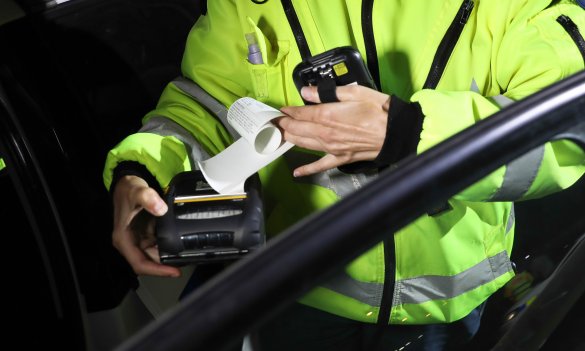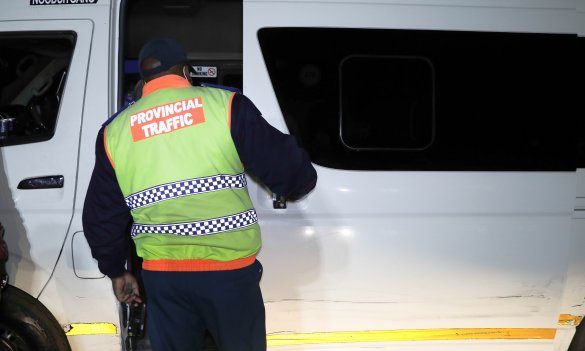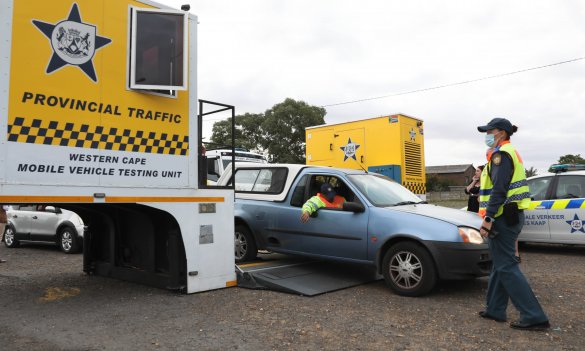Western Cape Provincial Traffic Services implemented a total of 248 integrated roadblocks, vehicle check point and speed control operations across the province in the week of 19 to 24 April 2022, and 28 047 vehicles were stopped and checked.
A total of 238 speeding offences were recorded and 7 290 fines were issued for various traffic violations ranging from driver to vehicle fitness. Thirty-nine vehicles were impounded and 123 were discontinued for unroadworthiness.
Speeding is a serious concern. The faster you drive, the less time you have to respond to an emergency and the more space you need to stop to avoid a crash. Speeding is irresponsible and dangerous. The highest speeds recorded this week were as follows:
- 207 km/h in a 120 km/h zone
- 144 km/h in a 100 km/h zone
- 124 km/h in a 80 km/h zone
- 104 km/h in a 60 km/h zone
National Road Traffic Act and Criminal Procedure Act
A total of 56 arrests were made for the following offences:
- 28 x driving under the influence of alcohol
- 2 x speeding
- 3 x reckless and negligent driving
- 1 x goods overloading
- 11 x possession of fraudulent documentation
- 1 xinducing any authorised officer or peace officer to act in conflict with his/her duty
- 3 x obstructing or hindering an authorised officer in the execution of his/her duty
- 2 xfailing to furnish information
- 1 x riotus behaviour
- 1 x crimen injuria
- 1 x defeating the ends of justice
- 1 x resisting arrest
- 1 x assaulting an authorized officer
Fatalities recorded between 19 to 24 April 2022
A total of 23 crashes occurred in the reporting period, and 23 fatalities were recorded:
- 1 x cyclist
- 1 x motor-cyclist
- 2 x drivers
- 4 x passengers
- 15 x pedestrians
#BeTheChange you want to see on our roads in April
“Our traffic law enforcement officers enforce the law 24 hours a day, seven days a week, but road safety is everyone’s responsibility. #BeTheChange you want to see on our roads”, says Vigie Chetty, Director: Traffic Law Enforcement. “Whether we use the road as drivers, passengers, cyclists, motorcyclists or pedestrians, every one of us should take personal responsibility for our behaviour as road users. Please be considerate and careful. Look after your own safety, and the safety of every other person on the road,” she added.
Even small amounts of alcohol can affect your judgement as a driver or a pedestrian. Take personal responsibility and do not drive or cycle when you have been drinking. Make other arrangements to get home. If you are stopped by a law enforcement officer and the officer suspects that you are over the legal limit, you will be arrested. If you are convicted of driving under the influence of alcohol, you will have a criminal record.
Take personal responsibility for your own safety when you walk near a road. Don’t drink and walk. Don’t wear headphones or earphones when you cross a road. Only cross roads where it is safe to do so. Wear visible clothing, especially at night. Motorists can only avoid you if they can see you. Driving tired is as dangerous as driving drunk. If you are tired, pull over and rest. On a long journey, plan to take rest breaks in safe places every 200 km or two hours. Take personal responsibility for your own safety and for the safety of others by never driving when you are tired. Don’t allow yourself to be distracted when you are driving or walking. No phone call or message is so important that it is worth risking your life, or the lives of others.
If you drive a public transport vehicle, be extra careful. Take personal responsibility for ensuring the safety of your passengers. Make sure your vehicle is roadworthy and that your operating licence is in order. Ensure that you and all occupants are wearing a mask over their noses and mouths, and sanitising regularly. DTPW uses electronic systems to monitor public transport vehicles, drivers, and trips. The details of operating licences are available to traffic officers in real time. Tired drivers will be pulled off and made to rest before they resume their onward journeys.
Seatbelts save lives. Every driver and passenger must wear a seatbelt at all times, even on the shortest trip. Children under the age of three must be in an age-appropriate child seat. Set an example and fasten your seatbelt every time you drive.
Never speed. Speeding drivers risk the lives of the people in their vehicles, and the lives of others. It is best to travel slowly and carefully. It’s the only way that you will be able to react to emergencies in time. If a vehicle travelling at only 60 km/h crashes, a 55 kg person without a seatbelt will experience an impact of over 19 000 kg! With a seatbelt, the force will be about 3 800 kg.
It’s up to you to make the difference. #BeTheChange you want to see on our roads.
Media Enquiries
Jandré Bakker
Head of Communication
Department of Transport and Public Works
Email: Jandre.Bakker@westerncape.gov.za





